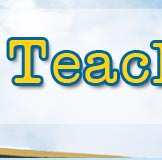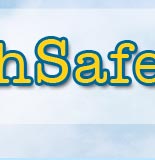National Mentoring Organizations and Programs
1 | 2 | 3 | 4 | 5 | 6 | 7 | 8
These eight national-organization websites provide technical assistance, resources, and training for mentoring programs. These websites include the best-known mentoring organization, Big Brothers Big Sisters, and the best-known federal mentoring program, JUMP.
1. America’s promise—The Alliance for Youth
http://www.americaspromise.org/
America's Promise—The Alliance for Youth is led by General Colin Powell to fulfill five promises:
- Caring Adults
- Safe Places
- Healthy Start
- Marketable Skills
- Opportunities to Serve
America’s promise brings more than 400 national and local mentoring organizations together as partners to strengthen local communities in the United States.
2. Big Brothers Big sisters of America
http://www.bbbsa.org/site/pp.asp?c=iuJ3JgO2F&b=19547
Big Brothers, Big Sisters of America (BBBSA) is the oldest and largest mentoring organization in the United States to provide traditional one-to-one mentoring to children and youth. BBBSA serves more than 5,000 communities and 200,000 children and youth across the country at an average cost of $1,000 per match.
A 1995 study reports mentees, especially minority group students, are less likely to use drugs and alcohol, and more likely to improve school attendance, academic performance, and relationships with parents and peers.
The New York City chapter provides specialized programs to address issues in their communities: http://www.bbbsny.org/jjmp.cfm
East New York Family Care and Mentoring Program
BBBS NYC launched a program called East New York Family Care and Mentoring Program in 2000, which provides mentoring and family intervention. The program is carefully designed and coordinated by professionals. The purpose of this program is to reduce foster care placement of children by preventing physical and emotional abuse in a family.
New American Partnership
The New American Partnership is a culturally sensitive program for immigrant youth facing difficulty adjusting to the community and schools.
September 11 Mentoring Program
BBBS NYC developed a project after the September 11th attack for the children who were affected by the attack. Mentoring and counseling programs are offered for children whose life was changed after the attack. Those who lost parents in the attack are receiving specialized care with the supervision of professionals.
Back to Top
3. I Have a Dream (IHAD) Mentor Program
http://www.ihad.org
IHAD programs help assist disadvantaged children to pursue higher education by serving children from low-income communities to provide long-term tutoring/mentoring. Scholarships and tuition assistance are also available. There are over 180 projects in 64 cities across 27 states.
University of California, Berkeley, I have a Dream Project
Center for Urban Education
http://www-gse.berkeley.edu/research/urbaned/I_have_a_dream.html
In this university-based mentor/tutor project, UC Berkeley undergraduate students assist a group of elementary school students from third through twelfth grade. Their preliminary findings report positive ratings by mentors and gains on achievement test scores by over 50% of the mentees.
Back to Top
4. JuvenileMentoring Program (JUMP)
http://ojjdp.ncjrs.org/jump
The Juvenile Mentoring Program (JUMP), funded by the Office of Juvenile Justice and Delinquency Prevention (OJJDP), supports programs that provide one-to-one mentoring to youth, who are at risk of becoming delinquent.
Since 1994, OJJDP has funded 299 mentoring programs with over 9,200 at-risk youth. The project also funds special programs for those who are abused or neglected, involved in the justice system, immigrants, disabled, and children of incarcerated parents.
“OJJDP has established three principal program goals for JUMP: Reduce juvenile delinquency and gang participation by at-risk youth. Improve academic performance of at-risk youth. Reduce the school dropout rate for at-risk youth.”
“As of October 15, 2003, the integrated JUMP database contained information on more than 20,000 youth, volunteers and matches. Interim evaluation results suggest a statistically significant improvement in peer relationships and aggressive behavior/delinquency risks”.
OJJDP reports include much valuable information, including evaluating and sustaining mentoring programs. A November 2000 summary of Jump programs is provided at: http://www.ncjrs.org/html/ojjdp/summary_comp_resp/chap3.html
Back to Top
5. Mentor: National Mentoring Partnership
http://www.mentoring.org/
The MENTOR: National Mentoring Partnership is an advocate for mentoring programs that provides leadership and resources to 23 states across the country. To strengthen the existing local organizations and programs, MENTOR brings State, federal, business, education, and religious sectors together to raise funding, organize events, and conduct workshops and conferences.
Each partnership state has its own website. Links to the state chapters: http://www.mentoring.org/mentoring_month/index.adp?Entry=find
The Mentoring Database provides information and assistance, such as volunteer recruitment, for registered mentoring agencies and organizations. In 2003, 3,828 programs were listed on the database with the majority of programs sponsored by non-profit organizations.
Back to Top
6. National Mentoring Center
http://www.nwrel.org/mentoring/
The National Mentoring Center, established and funded by the Office of Juvenile Justice and Delinquency Prevention (OJJDP), provides technical assistance, training manuals, evaluation, and workshops for mentoring agencies and organizations. Its Mentoring Exchange List Serve is a mailing list service for program providers and researchers to exchange information.
7. Public/Private Ventures (P/PV)
http://www.ppv.org/ppv/publications/publications.asp?search_id=7
Public/Private Ventures is a national nonprofit organization that assesses the effectiveness of programs. Recent publications are listed on this website, including the BBBSA Impact study, and studies on measuring the quality of mentor-mentee relationships, same race and cross race matching, and group mentoring. Reports on recruiting and training mentors are also available.
8. U.S. Department of Education
The United States Department of Education provides funding opportunities for school-based mentoring programs to serve at-risk students.
http://www.ed.gov/news/pressreleases/2003/01/01302003a.html
Announcement of a new $300 Million Mentoring Program for Disadvantaged Middle-School Children to provide grants to nonprofit, business, educational, faith-based organizations and other sectors to promote school-based mentoring programs. The Office of Safe and Drug-Free Schools administers the program. In 2004, 200 programs received funding to provide mentoring ($49,705,000).
http://www.ed.gov/legislation/FedRegister/proprule/2004-1/031504h.html
Notice of proposed priorities, requirements, and selection criteria
Back to Top
|







